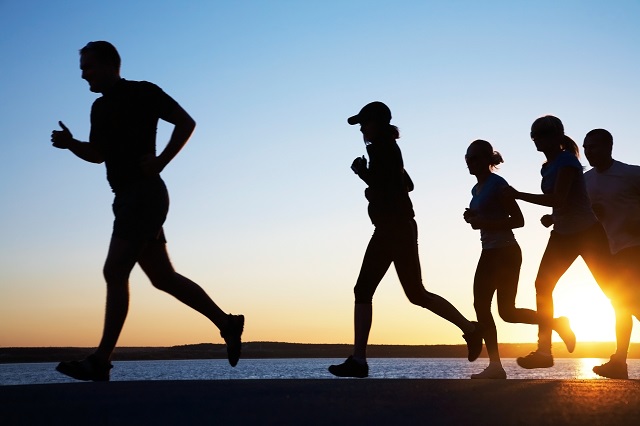
Alcohol and exercise doesn’t go hand in hand. If a person chooses to drink, they can say “goodbye” to their fitness goals as alcohol stunts physical development. If an alcoholic aims to quit, improving a physical condition can increase the process of recovery in several ways.
Exercise interventions are emerging as an innovative alternative approach to enhance recovery for those with SUDs. Addiction treatment is focused on improving both the physical and mental state of a patient. And research has shown that regular physical activity is beneficial for body and mind. More and more rehabs are implementing different types of exercise into their programs. It’s not only effective, but also low-cost, readily accessible, and enjoyable for participants.
So, if you or someone you know needs professional help in quitting alcohol or drugs, search the net to find drug rehab near me and check whether they offer some exercise course.
What Are the Effects of Alcohol on Fitness?
Alcohol & Physical Performance
Alcohol is not a stimulant as it is generally considered. It is a depressant that slows down the brain’s ability to function. Even though a person may feel “high” and cheerful after a few shots, the truth is that their psychomotor skills (reaction time, balance, accuracy, hand-eye coordination, and complex coordination) are impaired. Thus, the ability to perform is lower when compared with a sober workout. It may end by completing a training session earlier, losing a game, or sabotaging a workout.
Alcohol & Weight-Loss
Alcohol has 7 calories per gram. For comparison, fat has 9 calories per gram. And these are empty calories, those that provide little to no nutritional value. Drinking 12 ounces of beer will give you 150 calories. To burn them, you’ll need to dance for 30 minutes or to walk for a whole hour. Besides, alcohol can temporarily slow down fat metabolism.
Drinking after your training session will decrease the results. In one study, a group of men had a few drinks after an intense workout. It turned out that their recovery (also known as protein synthesis) and muscle growth decreased by 37%.
Alcohol & Dehydration
The so-called ‘drys’ are the result of an extreme symptom of alcohol’s diuretic (increased urination) effect. Active exercising also leaves you dehydrated. A combination of the two increases the risk of dehydration significantly.
Extra fluid loss from both exercising and drinking can also lead to a worse hangover and fatigue the next day. In this case, chances are that you’ll ignore going to the gym.
Alcohol & Muscle Repair
When you work out, you are creating microtears in our muscles fibers so that they repair and grow back stronger. Drinking alcohol after you work out prevents efficient healing of the muscles as it decreases the secretion of a human growth hormone. That’s why you feel sore longer and the body requires more time to fully heal the muscles.
Also, alcohol abuse increases the hormones cortisol (the one that causes stress) instead of testosterone levels. This also stunts the healing.
Alcohol not only keeps you from your fitness goals, it affects other aspects of your life. You feel more tired and reluctant to do anything. More and more often, an alcoholic starts to choose alcohol over the things they love. The earlier you begin to receive treatment, the less ruin you’ll bring to your life. Start looking for “rehab near me” today.
What Is the Role of Fitness in Treating Alcohol Use Disorder?
Though alcohol and other addictive substances like drugs and nicotine are the enemies for fitness and health, fitness can become a great supporter in recovery from addiction. And if you really like sports, you’ll speed up your recovery in “drug rehab near me” that offers an opportunity to exercise. It can be beneficial in several ways.
Fitness helps to survive the withdrawal syndrome. It happens when an addict stops using the drug of choice. This condition involves such mental symptoms as feelings of despair, depression, anxiety, irritability, and anger. Exercise has been repeatedly proven to reduce stress, anxiety, and depression. Thus, exercise can help to alleviate the withdrawal syndrome. If you think that you are too weak to go through detox, “inpatient drug rehab near me” will help you change your mind.
Exercise contributes to long-term abstinence. It has been investigated as a means for reducing the risk of relapse to addictive behavior. Studies show that people recovering from alcoholism, who completed the withdrawal phase of detox, have lower urges to drink if they are engaged in bouts of exercise.
Physical activity counteracts the negative health effects caused by substance abuse. Exercise will make you healthier, no matter whether you are in recovery or not. Long-term fitness improves cardio-vascular health and alleviates the symptoms of diabetes. It lowers the risk of some types of cancer and strengthens the immune system. Regular exercise can reduce inflammation in the body and central nervous system caused by excessive alcohol, drug, or cigarette use. It also helps restore a normal sleep schedule.
A commitment to fitness provides a distraction from urges to use. When an urge or craving occurs, you can distract the mind by planning your next workout session or meals.
Exercise can provide structure to your days. This involves spending time on developing a workout plan, signing up for fitness classes, and training at the local gym. A set workout plan makes you think like that: “No, I can’t have a drink. I have to get up and jog tomorrow morning”. Also, you will want to keep your sports progress. Returning to alcohol or drugs will ruin it, and this thought can stop you from relapse.
If you are interested in the potential of fitness in treating SUD, learn more at “drug counseling near me”. Some people think that they can’t work out due to their modest physical abilities. Don’t be misled. Exercise therapy can be tailored to the individual needs of every patient. It can be dancing, cycling, walking, yoga, swimming, running, or playing sports games. The bonus of this therapy is that you can practice it after rehab. It can be a great relapse prevention method.
Don’t wait. Call for help right now!


